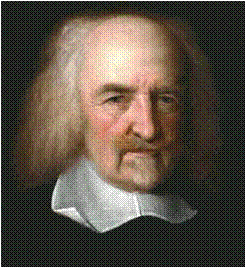
•Applied rational
analysis to the study of
government
•Attacked the concept
of divine right, yet
supported a strong
monarchy
•Believed that humans were basically driven by passions and needed to be kept in check by a powerful ruler
•Without a monarch to
exercise control, Hobbes wrote that people’s lives would be “solitary, poor, nasty, brutish, and short.”

